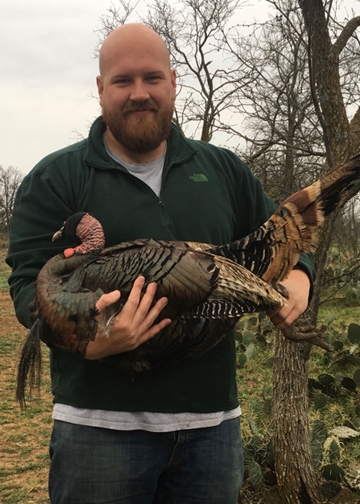
Dustin Golembiewski
Texas A&M University - Kingsville
Research Specialist I / M.S. in Range and Wildlife Management
Ecological Restoration of Frac Ponds with Topsoil Management and Native Plants
Natural resource extraction is a vast and growing industry in the state of Texas. While economically beneficial to many residents and responsible for many jobs, oil and natural gas extraction processes can be extremely damaging to plant and wildlife populations. Prior to beginning oil and gas extraction, it is commonly recommended that topsoil stock-piles be created to aid in the re-establishment of plant communities at a site. Topsoil is collected using heavy machinery, piled in a nearby location, and re-applied when the extraction process is completed, often years later. Stock-piles can be large, depending on site surface area, reaching several meters in depth.
Our study area, a retired fracking pond in Dimmit County, was restored in 2017 with stock-piled topsoil collected prior to construction. We segregated the existing stock-pile into 3 layers that were 4.5 feet in thickness and distributed these layers (along with a fresh topsoil surface and a non-amended surface) in separate strips over the pond. Each of the 5 surfaces was seeded with a mixture of (1) 13 native grasses, (2) 13 native grasses plus an annual warm-season grass cover crop, or (3) non-seeded.
Our assessment of restoration success began with plant density and species composition. We will collect topsoil samples for seed bank trials and analysis of soil chemistry and microbial community structure. These assessments will be compared to similar data collected from the stock-pile between 2012 and 2015. Our goal is to quantitatively assess the common recommendation of stock-piling topsoil following soil disturbance in semiarid regions and explore the efficacy of current methods. This information can help us make more informed recommendations about how to reestablish viable habitat for plants and animals post-disturbance.

